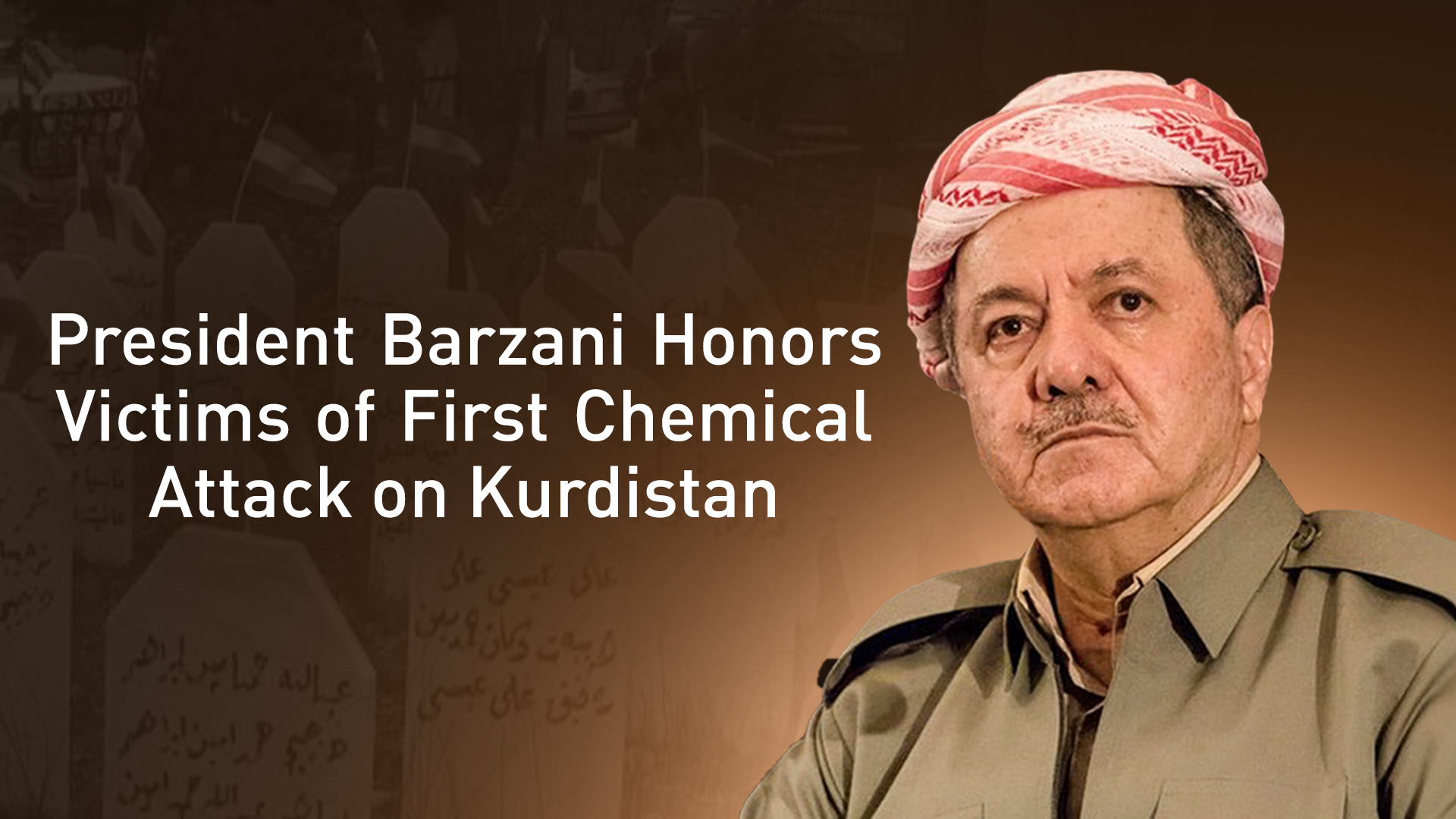President Barzani Honors Victims of First Chemical Attack on Kurdistan
Commemorating the chemical attacks on Khoshnawati Valley and Balisan, President Barzani called them “a crime and a heartbreaking incident; a testament to the brutality of Kurdistan’s enemies, as well as the resilience of our people against oppression.”

By Kamaran Aziz
ERBIL (Kurdistan24) – On the 38th anniversary of the first chemical weapons attack on Kurdistan, President Masoud Barzani paid tribute to the victims of the April 16, 1987, bombing of the Balisan area and Khoshnawati Valley, describing the atrocity as both a tragic testament to the cruelty of the Baath regime and a powerful symbol of the Kurdish people’s enduring resistance.
In a message published on the social media platform X, President Barzani wrote: “This heartbreaking incident is another proof of the brutality of Kurdistan's enemies and a symbol of the will and resistance of our people against oppression and occupation.” He saluted the “pure souls of the martyrs of that crime and all the martyrs of Kurdistan.”
The attack, carried out by Saddam Hussein’s regime, targeted the village of Balisan and several communities in the Khoshnawati Valley, including Sheikh Wasan, Kani Bard, Berawa, Shira, Khati, Malakan, and Darash. It marked the first confirmed use of chemical weapons by the Baathist regime against the Kurdish population, setting a grim precedent for the atrocities that followed during the genocidal Anfal campaign.
Dozens of civilians—including women, children, and the elderly—were killed or severely wounded in the attack. Witnesses and survivors described horrific scenes of choking, convulsions, and skin burns as clouds of toxic agents descended on the valleys.
It was one of the earliest signs that the Iraqi regime was prepared to use weapons of mass destruction against its own citizens to subjugate the Kurdish regions.
Tragically, the violence did not end with the bombing. In the aftermath, scores of wounded civilians were taken to hospitals in Erbil for urgent treatment. Many of them were subsequently abducted by the Baath regime’s intelligence forces and forcibly disappeared—a practice the Kurds call “Anfal.”
To this day, the fate of those individuals remains unknown, buried with the tens of thousands of other Kurds who were executed or disappeared during the regime’s campaigns of extermination.
The chemical bombing of Balisan and the surrounding villages not only foreshadowed the mass violence that would reach its apex with the Halabja massacre in 1988 but also exposed the moral depravity of the Baathist state, which had weaponized chemical agents in its internal war against the Kurdish population.